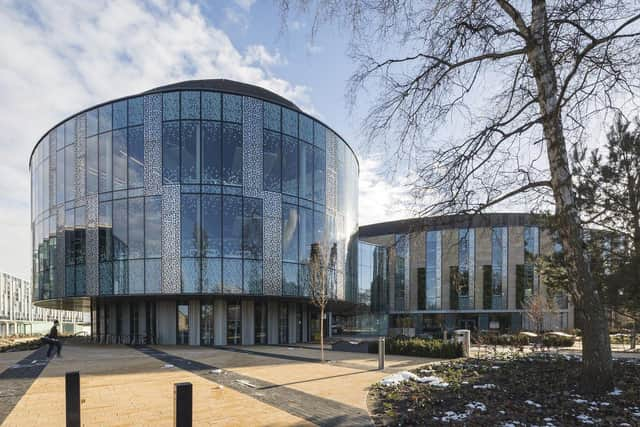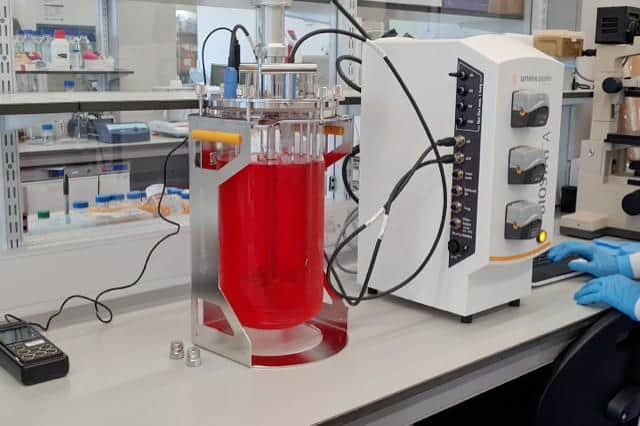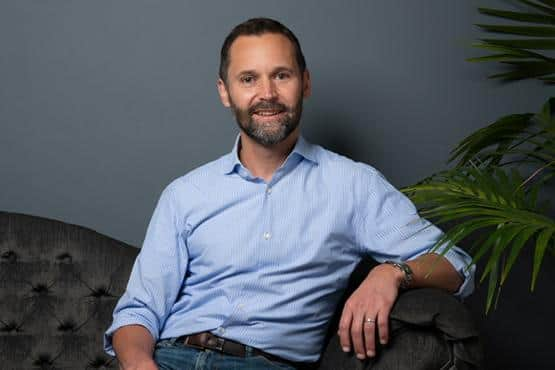How a Scottish biotech firm is upping the steaks in the emerging lab-grown meat sector
Now imagine if you could order a kit that would let you create the meat itself in your own kitchen.
This may sound like a futuristic fantasy, but an innovative Scottish company is already doing something similar.
Advertisement
Hide AdAdvertisement
Hide AdRoslin Technologies is supplying companies across three continents with all the components and instructions to grow animal protein in a tank.


The firm is a spin-out from the University of Edinburgh with links to the Roslin Institute, which famously reared Dolly the Sheep – the world’s first cloned mammal.
With a team of 24 experts from eight countries, the Edinburgh-based organisation is leading the field in the rapidly growing new sector.
Ernst Van Orsouw, who took over as chief executive last summer, believes artificially created meat offers a more sustainable alternative to traditionally reared equivalents but will never completely replace them.
The world’s first lab-grown beefburger was served up in 2013.


Despite being born in a petri dish, it looked and tasted pretty much like the ‘real thing’.
However, that unassuming little patty took scientists in the Netherlands two years to create and came with a $300,000 price tag.
Livestock farming gets a bad name for three key reasons: its high environmental impacts, including deforestation, emissions such as methane, heavy water usage and nitrogen production; animal welfare issues; and use of chemicals and medications, which can drive problems of antibiotic resistance.


Advertisement
Hide AdAdvertisement
Hide AdAnimal agriculture generates a seventh of global greenhouse gas emissions and is responsible for a third of all freshwater consumption.
Meanwhile, more than a quarter of the world’s land area is used to graze or grow food for farm animals and industrial meat production is the single biggest cause of deforestation worldwide, with vast swaths of woodlands being cut down to make way for pastures or crops used as feed.
Cultivated meat scores much higher, with no need for massive tracts of land or medicines – it can be grown in urban centres, near consumers and is produced in a sterile environment, inside a bioreactor.
From just five companies experimenting with meat cultivation in 2015, there are upwards of 100 today – backed by investment of more than £1.5 billion worldwide.
And Roslin Technologies is playing a major part in their drive to bring meat that is tasty, affordable, cruelty-free and eco-friendly meat to plates across the world.
Deals have already been signed with companies in the US and Europe and talks are underway for expansion into Asia and Latin America.
The firm supplies stem cells, derived from animals, and instructions for cultivation.
Apart from logistical and cost constraints, there is no limit to the quantity of protein that can be created.
Advertisement
Hide AdAdvertisement
Hide AdWhen growing, cells replicate every 24 hours. This means a single cell can multiply to fill around a litre after 42 days and an Olympic-sized swimming pool after 63 days.
Van Orsouw is enthusiastic about the potential of cultivated meat, which can be made from any animals, poultry or seafood, to help solve the problems of feeding the world’s rapidly expanding population while minimising environmental impacts.
“I don’t see a world where animal agriculture doesn’t exist,” he said.
“There will always be a big proportion of meat in the market.
“But I think there is likely to be a variety of many proteins in the mix, including livestock-based, plant-based and lab-based.”
However, there are still hurdles to clear before the industry becomes mainstream.
Firstly products will need to be thoroughly vetted and approved by food standard authorities before they can be widely sold – only in Singapore has this already happened.
But the cost of production must also be dramatically reduced to make the foods viable for mass consumption – and this could take another five years, he estimates.
Advertisement
Hide AdAdvertisement
Hide AdConsumers can expect the first lab-grown offerings to include the likes of burgers, sausages, sushi, that sort of thing, with more premium products such as steaks emerging further down the line.
“The outlook is really exciting,” Van Orsouw said.
“The industry may be decades away from realising its full potential, but the foundations are already being built here in Scotland today.
“Roslin Technologies makes pluripotent stem cells that can differentiate into any tissue.
“We ship them in vials to places all over the world.
“We provide starter cells, a recipe for the growing medium and cooking instructions, then the companies can make their own protein.
“We also provide an ongoing arrangement where we will continue to supply new cells to reflect any improvements or innovations.”
The type of products that can be created from the raw materials are limited only by the imagination.
Countless experiments are being carried out to perfect flavour, texture and form for a diverse range of foods, with some using 3D printing techniques to shape them.
“My personal thoughts are that we will see a completely new look for these products,” he said.
And he confides he has a little dream of his own.
Advertisement
Hide AdAdvertisement
Hide AdSo confident is he in the speed and power of innovation in the sector, Van Orsouw is already planning a novel Burns supper this time next year.
“It would be very cool for a Scottish firm to make the first lab-grown haggis,” he said.
It will certainly be a novel way to celebrate Scotland’s national bard and the “great chieftain o’ the puddin’ race”.
Watch this space.
The firm has already received more than £11 million of funding and support from a range of sources.
A message from the Editor:
Thank you for reading this article. We’re more reliant on your support than ever as the shift in consumer habits brought about by coronavirus impacts our advertisers.
If you haven’t already, please consider supporting our trusted, fact-checked journalism by taking out a digital subscription.
Comments
Want to join the conversation? Please or to comment on this article.
